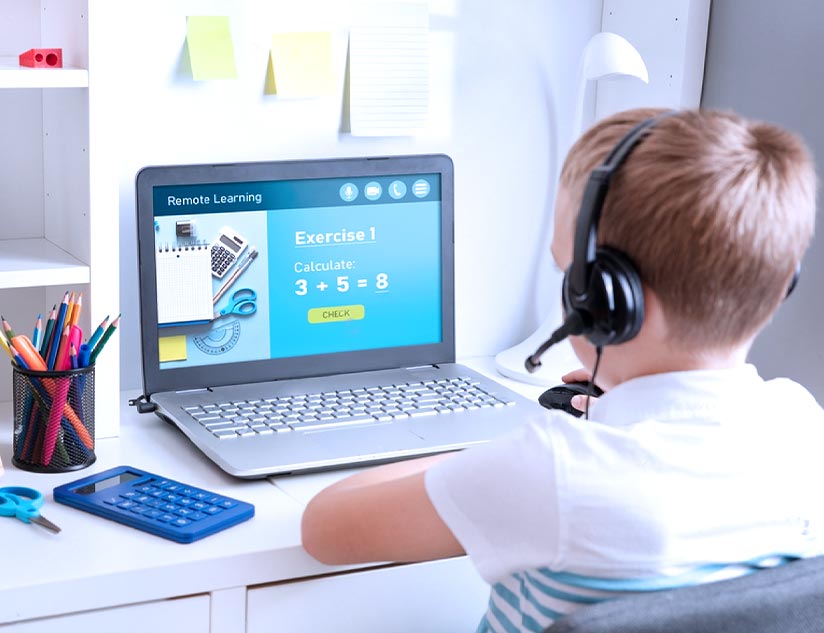Cognitive scientists, Nicholas Soderstrom and Robert Bjork, argued several years ago that traditional assessments focus on performance instead of learning. The two emphasized that while information retrieval is critical, true learning involves the application of acquired skills and knowledge, and their retention beyond “evaluations.” This gap between recollection and learning is now being addressed by modern digital assessments.
Significance of Digital Assessments in Education
Effective assessment is the cornerstone of quality education. It allows educators to gauge student progress toward learning outcomes and identify areas that need improvement. It helps educators adopt critically reflective teaching practices to validate that they are delivering meaningful learning. However, traditional assessments have certain drawbacks.
- Traditional assessments evaluate performance and not learning.
- Legacy examinations focus on recollection and reproduction over critical thinking and socio-emotional learning.
- There is little to no opportunity for students to productively use feedback to enhance learning.
- Traditional assessments are static, lack real-time feedback, and fail to align with diverse learning styles and individual goals.
This is where digital assessments, administered via digital learning platforms for content distribution prove transformational. They empower educators to adopt holistic, adaptive, personalized, and interactive assessment approaches.
Benefits of Digital Learning Platforms
Content distribution and assessments through online eLearning platforms empower educators in multiple ways.
Dynamic and Interactive
Digital learning platforms incorporate simulations, multiple scenarios based on user responses, and gamified elements. For example, multimedia content, including audio and video elements, leaderboards, badges, and more can be included in digital assessments. Interactive elements make assessments more engaging, while simulations reflect and facilitate the application of knowledge in real-world situations.
Flexible and Accessible
Online eLearning platforms allow anytime-anywhere access to assessments, catering to students with different learning speed and schedules. Formative assessments continuously evaluate learner progress toward learning goals, while summative assessments compare against district, national, or global standards. This enables a comprehensive approach to learning over a competitive one.
Personalized Learning Experience
Online assessments in education dynamically refine questionnaires based on learners’ performance in early questions to align assessments with individual capabilities and desired academic outcomes. AI-powered digital learning platforms can provide instant targeted feedback and opportunities to remediate knowledge gaps. They can also curate personalized learning paths, and recommend learning resources and assessments to enhance learning outcomes.
Digital Assessment Platforms Improve Assessment Delivery
Administering assessments through digital platforms for content distribution is among the innovative education methodologies that leverage technology to promote creative thinking and analytical skill building, while bolstering engagement. Here’s how:
Real-time Feedback
Digital learning platforms provide immediate feedback for formative assessments, such as quizzes and assignments. This helps educators to identify students’ weaknesses and intervene to help them improve.
Gamification
Leaderboards, badges, and points can remove assessment-related anxiety while motivating students by making the experience more enjoyable.
Multimedia Integration
Educators can incorporate multimedia elements like audio, video, and images, catering to diverse learning styles and making formative and summative assessments more comprehensive, inclusive, and reflective of the real world.
Collaborative Assessment Tools
Online eLearning platforms can facilitate video assessments and feedback, peer review, and group projects, fostering collaboration and communication skills in learners.
Best Practices to Leverage Digital Assessments in Education
- Ensure assessments delivered via digital platforms align with learning objectives and go beyond simply memorization by rote.
- Provide training for educators on using digital assessment tools effectively. Consider accessibility, algorithmic bias, and special learning needs while designing assessments.
- Incorporate diverse assessment formats to cater to different learning styles.
The Future of Assessments
The future of assessment lies in leveraging artificial intelligence (AI) and data analytics. The US Office of Education Technology says, “Assessment becomes formative when it results in useful reflections and changes to the course of teaching, learning, or both.” It emphasizes the concept of a “Feedback Loop,” where learning is complete only after students can improve learning by leveraging feedback.
Delivering AI-based digital assessments via online eLearning platforms provides access to personalized feedback, identifies learning gaps early on, and recommends targeted learning resources. Data analytics can track student progress over time, giving educators a more holistic picture of their learning journeys and educational achievements.
Advancements in technologies, such as AI, machine learning, and virtual reality, will empower educators to make learning and assessments more engaging and immersive. Additionally, digital learning platforms will facilitate the evolution of pedagogy, enabling reflective teaching.
Digital Assessments that Respond to Learner and Learning Needs
Digital learning platforms can be instrumental in transforming the assessment landscape. By embracing dynamic, interactive, and personalized assessments, educators can empower students to become self-directed learners while improving learning achievement. As AI and data analytics evolve, assessments will become even more personalized, insightful, and learning-oriented.
Educational institutions and digital publishers must embrace online assessment platforms to stay competitive in the rapidly evolving landscape. MagicBox™’s proprietary digital content creation and distribution platform is equipped with AI-powered content authoring and distribution toolkits that power educators with learning-oriented assessments. The platform is equipped with tools that facilitate compliance with global standards and drive state adoptions. Analytics-based adjustments and advanced technologies facilitate the creation of personalized learning paths.
Schedule a live demo now to learn more about leveraging digital assessments and elevating learning achievement to future-proof your educational institution.
















